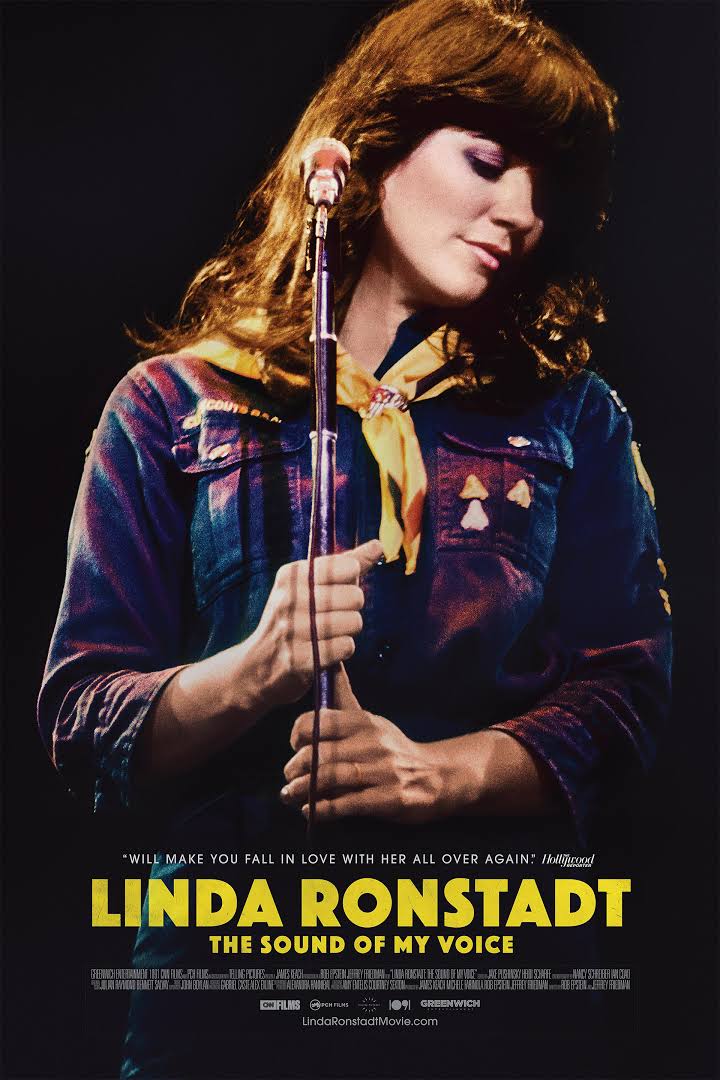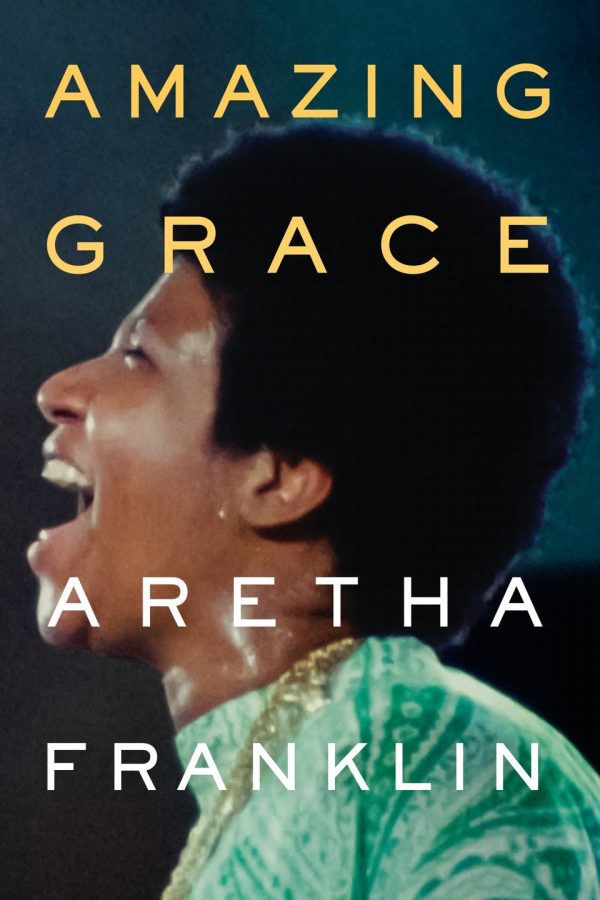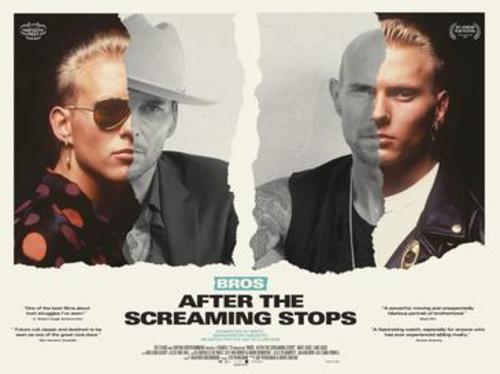By Glenn Dunks
It’s that time of the year where we play musical chairs and look at some of the music documentaries that have come along because there are just too many. Not all that much connects this batch of musicians – other than I am a fan of them to a degree, I suppose – but watching the films and there is a surprising spread of style and form. Surprising, also, because the artist that comes out on top is the most unexpected of them all.
 The most informal, yet ultimately least satisfying of the batch is Linda Ronstadt: Sound of My Voice. It is somewhat disappointing that Oscar-winning filmmakers Rob Epstein and Jeffrey Friedman (The Celluloid Closet) decided on such a rudimentary structure considering their subject was somebody who repeatedly coloured outside of the lines of the artform.
The most informal, yet ultimately least satisfying of the batch is Linda Ronstadt: Sound of My Voice. It is somewhat disappointing that Oscar-winning filmmakers Rob Epstein and Jeffrey Friedman (The Celluloid Closet) decided on such a rudimentary structure considering their subject was somebody who repeatedly coloured outside of the lines of the artform.
But any film about somebody as talented and interesting as Ronstadt, there is always going to be much enjoyment even if it is assembled rather blandly. The doc charts her rise through the California rock scene, working alongside bandmembers who would later help form The Eagles, and her diversions through rock, country, mariachi and pop music and her later struggles with Parkinson’s Disease that has robbed her of the voice that so enchanted generations.
Its more traditional biographical leanings hobble the film, and their choice – perhaps by Ronstadt’s own request – to only use their subject as intermittent narrator robs the film of the emotional power that her presence holds. Prizing gentility over grittiness, I suppose, the movie rarely wades deeply into anything that has the potential for prickliness. Her refusal to not divert a tour away from South Africa is awfully relevant to contemporary musicians being forced to not perform in Israel, yet the film doesn’t seem all that interested. Nor of her politics, really, which only comes up at a glance. As the title suggests, they chose to focus on her musical voice, but in doing so it robs Ronstadt of a more fully-rounded and essential portrait that she deserves. Even the talking heads are filmed in front of drag K-Mart photo backdrops.
Taking a similar beat-by-beat approach is Miles Davis: Birth of the Cool. But where the Ronstadt doc felt like much was missing, Stanley Nelson’s film shoves entire generations of content into its runtime. Using news and cultural footage to signify key shifts in his life, Birth makes great use of Carl Lumbly’s raspy narration of passages taken from Davis’ own 1989 autobiography and gets deeper into themes of racism, drug abuse, and Davis’ ability to shift through a changing musical landscape. Particularly interesting are the stories about his work on Louis Malle’s Elevator to the Gallows, with the entire film benefiting from a musical score made from Davis’ own compositions and recordings.

Aretha Franklin is somebody whose life has been talked about as dramatic biopic fodder for years, but sometimes a film like Amazing Grace comes along and shows how fruitless such an endeavour would be. Who could possibly attempt that voice, that gravitas, that history? Compiled out of unreleased footage of Franklin recording her double platinum-selling live album of the same name, some viewers may be disappointed that this isn’t a traditional live concert film with hits like “Respect”, “Chain of Fools” or “Think”.
 But what is here is a marvel to behold. Her voice travels out of the speakers with such force, one can only imagine what it would have been like to be in the New Temple Missionary Baptist Church in L.A. that June, 1972. Alongside Aretha’s oft-breathtaking singing, the film highlights the efforts of Reverend James Cleveland as well as the Southern California Community Choir whose efforts are indisputable to the album’s success. Original director Sydney Pollack, seen roaming throughout the choir capturing the sweat-soaked performers and audience in the Sunday best, gifted Alan Elliott with some great footage, seeped in the doc style of early Pennebaker. Amazing Grace is as much a treat for fans of documentaries of the 1970s as it is fans of Aretha and gospel music. Well, almost.
But what is here is a marvel to behold. Her voice travels out of the speakers with such force, one can only imagine what it would have been like to be in the New Temple Missionary Baptist Church in L.A. that June, 1972. Alongside Aretha’s oft-breathtaking singing, the film highlights the efforts of Reverend James Cleveland as well as the Southern California Community Choir whose efforts are indisputable to the album’s success. Original director Sydney Pollack, seen roaming throughout the choir capturing the sweat-soaked performers and audience in the Sunday best, gifted Alan Elliott with some great footage, seeped in the doc style of early Pennebaker. Amazing Grace is as much a treat for fans of documentaries of the 1970s as it is fans of Aretha and gospel music. Well, almost.
Despite these three documentaries all being about artists whose contributions to music are immense and indisputable, my favourite of them all is the one that is about the most disreputable of the lot: the ‘80s boy-band supergroup Bros. When they sang “when will I be famous?” the answer was clearly ‘right now!’, but Joe Pearlman and David Soutar’s After the Screaming Stops doesn’t want to just chart the rise to fame of a pop band now mostly forgotten and left to 1980s compilations. Instead, it charts their return to pop music as they prepare for their first concert together in decades as screaming hordes of Bros superfans eagerly await their return.
Unlike the other three documentaries, After the Screaming Stops has no pretensions of seriousness. Audiences will surely realise quickly that Luke and Matt Goss – two thirds of Bros, although original third member Craig Logan doesn’t appear – are like a real-life Spinal Tap. Waxing philosophical about their lives, their strained brotherly relationship and anything else that they choose to talk about, this film swerves drastically from where-are-they-now tabloid fodder about bickering brothers back on stage together into a hysterically funny work of is-it-or-isn’t-it-real awkward comedy that may just be the best film of its sort since Madonna: Truth or Dare.

Do I wish there had actually been more performance footage of their over-their-top Wembley performance? Sure. But it’s not like what else we have been gifted is anything less the fabulous. A truly nuts work of pseudo surreal pop filmmaking, After the Screaming Stops ought to be destined for cult status as people not only discover this compelling work of overly sincere bio-memoir meets car crash reunion, but the boys themselves who had a long string of hits that sit gathering dust just waiting to be rediscovered. This may be the funniest film of the year as well as one of the most entertaining documentaries.
Release: Linda Ronstadt: The Sound of My Voice and Miles Davis: Birth of the Cool are both in limited theatrical release right now. Amazing Grace is now on home entertainment and VOD. When the Screaming Stops is streaming on Hulu and Prime Video.
Oscar chances: Amazing Grace was eligible last two so that's out, and the Bros doc is so not what they go for that just the thought of it as a laugh. Of the other two, I suspect Miles Davis has a better shot, but then again the pair behind Linda Ronstadt have three Oscars between them so you can never discount them (and they were nominated just earlier this year for their short End Game).